Online Reputation Monitoring: Crucial But Forgotten
Here's something strange:
Online reputation monitoring should be practiced by all individuals and brands no matter the industry.
Reputation monitoring is easily one of the most important pieces of the online reputation puzzle. As a matter of fact, it’s so important that it's one of the core features of our reputation management software.
However, most people don't do it well (or at all).
Any idea why?
Typically, they just don't know they should! Online reputation monitoring isn't as flashy as social media promotion, SEO, or branding, so no one talks about it.
Here's a shot of Google trends showing "interest over time" for each of these four topics:
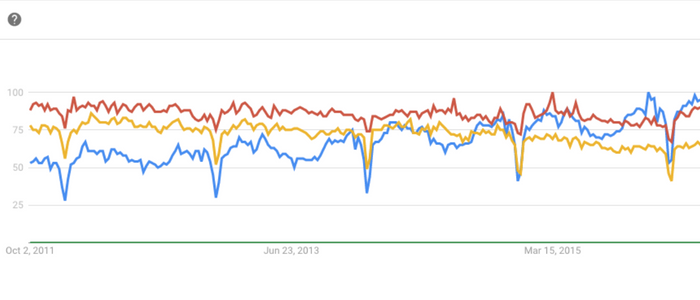
- Red line = SEO
- Yellow line = branding
- Blue line = social media promotion
- Green line = online reputation monitoring
Please note that while the first three lines experience a range of dips and growth, the green line (that represents online reputation monitoring) is holding on to 0 with gusto.
So why is this?
The possibility of more customers and social media followers makes the first three practices of SEO, branding and social media promotion much more appealing than monitoring your brand. However, if you don't know what's being said about you online you'll still take a hit in your personal and professional life.
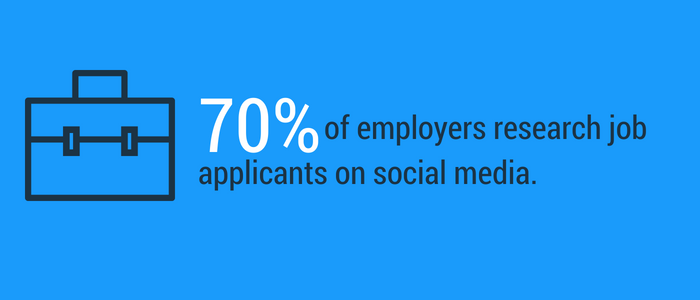
Whether it's a potential customer, employer or date, your online reputation has a lot of influence in how you're perceived. This makes online reputation monitoring a necessity. And the stats back this up. Consider the following:
- If you’re a student applying for college: 40% of college admissions officers look you up on social!
- If you’re applying to entry-level jobs: 70% of employers research job applicants on social media. And as if that wasn’t enough, virtually all (96%) job recruiters use social media to find candidates.
- If you are looking for a position as a C-Level executive: Nearly all (90%) executive recruiters look up these job-seekers on social media.
- If you already have a full-time job you still need online reputation monitoring: 51% of employers screen existing employees by using social media. A whopping 34% of these employers found enough evidence online to warrant reprimanding or even firing an employee.
- If you are a freelancer or independent consultant: At least 81% of employers choose to conduct online screenings for freelancers, independent contractors and consultants. And this number is consistently on the rise!
If you neglect to monitor your reputation online, then you open yourself up for serious negative consequences in the real world.
Not sold yet?
Consider this:
As you know, building up your reputation and brand online is an ongoing process. It requires time, hustle, and perseverance.
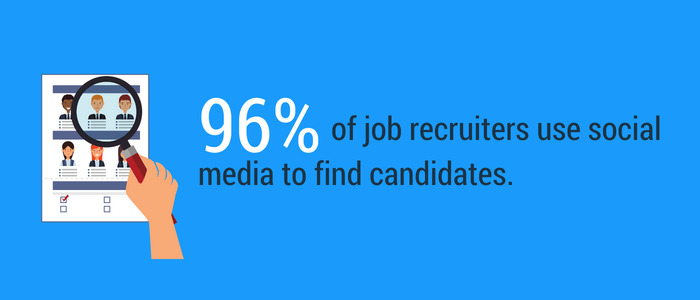
Let's say you've done all of this. You've stuck with it and have been diligent about building a strong foundation of online properties that look great whenever someone looks you up online.
At this point you decide to put things on cruise control and focus on getting some more Twitter followers for a while (gotta get verified right?). You spend your time building up your Twitter fandom, but don't monitor your online reputation.
While this focus on your Twitter account is definitely going to help you… by not properly monitoring the rest of your online reputation, it may ultimately be the cause of your digital downfall.
While you’re busy analyzing the performance of your latest tweet, suppose something negative gets written about you on a small blog. That article gets indexed by Google and starts showing up when anyone searches your name.
Eventually, people are seeing this article as the first or second search result for your name. People are talking about what they found. They may even be sharing links to the blog post on social media and discussing the contents of the article on various industry forums.
To make matters worse, this article is now encouraging others who might not be your biggest fans to start leaving negative reviews about you on other sites.
That spotless reputation you had just 6 months ago?
Gone.
Now anyone who interacts with your brand online is seeing this and getting a terrible impression of who you are. Customers are second-guessing their purchases and the job offer you were counting on from that big-time firm uptown is long gone.
Sound extreme? Unfortunately, this scenario isn’t uncommon.
Negative sentiment can build up quickly online and it's your job to monitor your online reputation before it spirals out of control and becomes a serious problem for you.
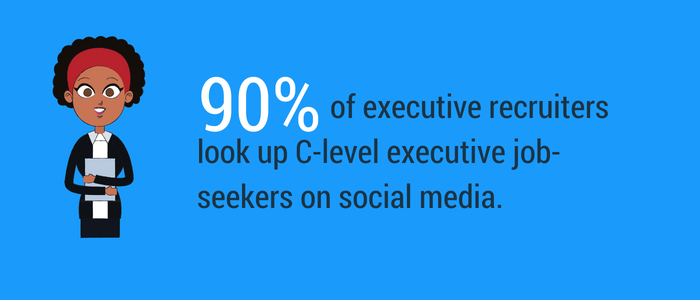
These aren’t rare occurrences. Across all industries, individuals and businesses find themselves in similar situations daily. And the frustrating thing is that this kind of disaster could have been avoided - or at least tempered with online reputation monitoring.
By simply introducing the tools and practices necessary to properly monitor their online reputations earlier, these people could have prevented the damaging effects of this negative content.
That's why we've put together this resource. We want you to take advantage of the tools and services that you already have at your disposal to mitigate any damage from unflattering content published about you online.
What exactly is online reputation monitoring?
Online reputation monitoring refers to the process of tracking a person or company's presence on the web.
It is a blanket term that can include a number of different methods, metrics and tools for keeping track of how a person or business appears online. So, in addition to looking at how a brand is portrayed in search results, online reputation monitoring also follows how the brand appears across social media platforms and even community forums.
Online reputation monitoring looks at all the different components that contribute to how a brand looks online, so that includes images, videos, whitepapers, court documents, pdfs, gifs, maps - any kind of content that’s attached to to the brand!
Doing this effectively likely requires that you use a few different methods, but the intention is the same.
Reputation monitoring should help you identify who is saying what about the brand (here a “brand” refers to an individual, product, business, service, etc).
By actively monitoring your online presence, you’ll have the tools that you need to understand what’s being said about you and ultimately respond intelligently in a way that serves your interests. Keeping an eye on what others say about you (or your brand) online:
- Lets you better understand your existing audience, or people who are engaging with your brand (even if they are saying something negative)
- Helps you get a sense of whether or not you need to respond directly to any complaints lodged against you. Or if you need to tailor your content strategy in other ways in order to deal with negative content.
- Allows you to gain the trust of your audience or consumers (existing or future).
All of this has the power to make or break your brand or company. By monitoring what people are saying about you online, you can promote the positive reviews and deal directly with the negative.
We will go into more detail about the different kinds of tools that you can use for doing this in later sections.
While monitoring what people say about you and your business may seem overwhelming at first, there are quite a few free or low-cost tools that can help you keep an eye on what’s being said about your brand online.
Effective reputation monitoring combs through all kinds of digital sources for every possible mention of your brand’s name in order to capture an accurate picture of what people are saying about you.
Why does it matter?
If you don't stay current with your brand online and acknowledge what people are saying about you online, you're playing a dangerous game.
While it might not come back to bite you right away (this is usually why people don't start in the first place), over time something will come up.
Whether it's a negative article, an unfounded harsh review, or unflattering feedback you haven't addressed, not monitoring your brand risks all types of online attacks to your reputation. And the more visible this content is, the more damage it will do to your brand.
If you aren't aware of the kind of harmful information out there about you, then you won’t be able to face the problem head on. And it’s not like the problem is going to disappear on its own. Instead, the information will continue to hurt you over time.
On the flip side, if you do choose to monitor your online reputation, you will benefit in a number of ways.
As we mentioned before, monitoring your online presence gives you the opportunity to further improve your brand by responding right away to positive (or negative) feedback. You need to at least be aware of the current conversations surrounding your brand so that you can make an educated decision about how/if you want to respond.
Monitoring your online reputation also helps you keep track of the things that you're doing that others respond to!
Positive comments on review sites, feedback on Twitter and engagement with a particular topic that you write about can help inform your future brand decisions (in real life and online).
Monitoring your online reputation provides you with actionable information that you can apply to many aspects of your brand.
By being aware of how you appear online you can stay engaged with your growing audience and help build a loyal following.
If the feedback is negative, you can respond quickly before things get out of hand.
Unfortunately, negativity seems to spread much faster than positivity online. By responding immediately you can nip any issues in the bud and prevent a potentially damaging situation from escalating in the first place.
What should you monitor?
As you can see, online reputation monitoring is critical when it comes to building and maintaining an effective brand on the web.
A lot goes into doing this properly, but the following sources top the list:
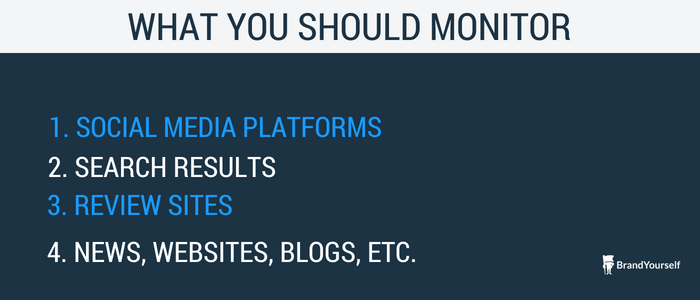
Social media platforms
Keep tabs on what people say about you or your brand on social media. If it's negative, take steps to fix the problem or resolve the issue - especially if it’s a negative review or valid complaint.
If the engagement around your brand on social media is positive, reach out and say thanks! If someone has a question, give them a thoughtful answer or link them to a resource (preferably your own) that provides more clarity.
All of these are very easy to take care of when you are aware of what's happening on social with your brand.
In addition to monitoring what others are saying about your brand on social media, take a look at your own behavior on those platforms.
Be critical about how you can improve. If you only use Twitter to share your latest blog posts, that's something to improve on. Just tweeting about your latest posts is too one-sided.
In order to get the most out of social media accounts like Twitter, try to engage with other users directly! Comment, re-tweet, like, follow - just get active and join the conversations that are relevant to your industry and interest areas.
When it comes to monitoring your social media accounts, look for missed opportunities to connect with your followers or others in your industry.
Take note of things you did that worked well on social media to repeat these successes in the future.
There are a number of tools that can help you keep track of engagement numbers on social media accounts, but you should also stay on top of any activity that could damage your overall presence.
News websites, blogs, and other sites
Monitoring for mentions of your name on these sites is another important part of the process. If the content is negative, check to see if it's gaining any traction with the site's readership.
You can do this easily by checking the comments and responses to the article on the site and on social media.
If the mention is positive, go the extra mile to reach out to the writer and thank them. You can also interact in the comment section if readers are discussing the article.
This is an extremely effective way to earn your brand new fans and advocates.
Review sites
Online reputation monitoring for a brand relies heavily on tracking review sites like Yelp or TripAdvisor. Consumers are visiting these sites more and more when looking to do business with a brand or individual.
Not only are these sites viewed as a standard part of the research process, they are heavily trusted sources. This makes getting great reviews and ratings on these sites a must.
There are a lot of review sites out there, so it's important to know which ones to focus on. You will likely want to monitor larger sites like Yelp and Google My Business, but there are smaller industry-specific review sites that you should definitely incorporate as well.
For example: If you run an apartment complex, you will want to monitor sites like apartments.com and apartmentratings.com for comments about your services.
If you aren’t sure about where to start for your industry, a quick Google search can get you heading in the right direction.
Search for reviews in your industry. You should also search your own brand in Google. The review sites that show up on the first and second page will be worth keeping an eye on because they are very clearly associated with your brand and industry.
Take a look at competitors on these kinds of review sites as well to get a sense of how they are choosing to monitor and manager their online brands here.
Search results
The search results that appear for your name are another central part of your online presence. This is what people are going to see when they are searching your name.
People turn to search engines like Google to look up information all the time. Because of this, negative content and bad reviews that are extremely visible in your search results will reflect poorly on your brand.
When it comes to organic search results, unflattering items don't just go away on their own. It takes a firm grasp of search engine optimization tactics and an investment of time and energy to clean things up.
Incorporating search results into your online reputation monitoring strategy will help you to attack a problem as soon as it appears and truly make the most of the time and energy that you’re devoting to developing your online brand.
You can also use this information about search results to keep tabs on low-ranking negatives and irrelevant content that currently pose no threats, but could creep up in rankings over time. Step in and stop these kinds of results before they gain traction in search engine rankings and truly cause damage to your online presence.
How to monitor these easily
While it may seem impossible to keep tabs on any and every mention of your name online, there are a number of tools that can help you with just that.
We've built one over here at BrandYourself that covers the key essentials. We’ve also listed a few other options that work great in conjunction with our software.
Our software
Online reputation monitoring with our DIY reputation management software is about as easy to use as it gets. Whether you choose a free or Premium subscription, our software identifies potentially harmful links and tracks them once you have confirmed how dangerous they are
Our online platform also identifies the highest impact steps you can take to give your profiles a better chance of ranking well in search engine results.
We've also recently created an additional feature to our reputation management software product called, "Social Scanner". As mentioned earlier, this proprietary technology flags potentially damaging content on your social media profiles, then lets you comb through each result and decide whether or not to delete it. This feature gives you one more way to ensure that you are portraying yourself in the best light possible online.
Social Scanner lets you connect your own social media profiles like Facebook and Twitter so that our software can find anything you may have posted in the past that could come back to haunt you. You can choose how you’d like to filter these posts, and adjust accordingly.
This feature may also be a wake up call about how you’ve been choosing to express yourself and your beliefs online. Does this flagged content accurately represent you? If not, it’s time to make some changes! And if it does, you may want to reflect on your behavior.
Additional free tools
Our software does a great job of tracking indexed pages in Google and looking for red flags on your social media properties.
If you want to track more specific sources (like forums for example), here are some additional options that you should add to your arsenal. Just like our software, they won’t cost you anything.
Google Alerts
This is a great tool by Google that lets you create alerts for specific terms and phrases that you want to keep an eye on.
All you have to do is go to their page and enter your name, brand or keyword. After that you will be automatically notified via email of new content that’s being published to the web about you.
This is an easy and direct way to monitor your brand. If you are branding yourself then you can track high level success as well. Make sure that you list all relevant keywords associated with your brand so that you are as informed as possible about your brand’s online reputation.
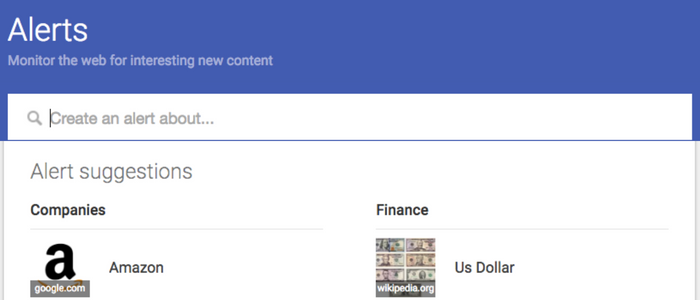
Social Mention
Similar to Google Alerts, social mentions will give you results based on specific search queries. However, there are a couple of neat additions to strengthen the reputation monitoring ability.
With Social Mention, you can keep tabs on brand strength, sentiment, passion, and reach. Brand strength and reach are both things that you can find from other sources. However, the accuracy of this information can vary depending on how an online tool chooses to quantify it.
With that in mind, it’s a good idea to look at these numbers according to a few different tools so that you can find an average. The sentiment and passion data (as seen on social mention) is really where you can get some great insights and compelling data.
Being able to get a quick glimpse of this information will always be extremely helpful in shaping your brand strategy and seeing where you need to engage with your audience ASAP.
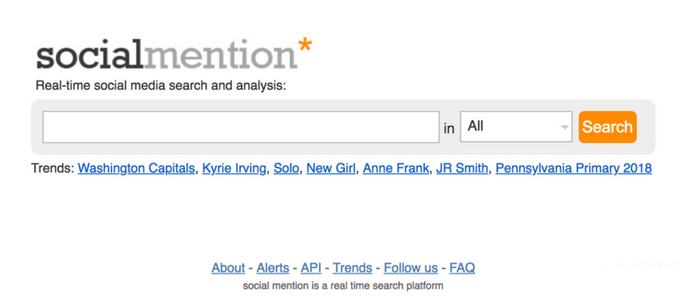
Bookmarking + Chrome user hack
This is a little hack that you can do to quickly view a specific group of web properties without spending too much of your time.
We recommend using the Google Chrome web browser for this, so all of the steps will be for that browser specifically.
Start by putting together a list of sites you want to monitor. You can be as specific as you want with this. A competitor’s Yelp page, specific forum threads - anything you want. Once you have this list it’s time to get Chrome set up with another user.
In the top right corner of your Google Chrome window you will see a little “person” button. Click that and then select “switch person”. This will automatically create another Chrome user that you will use strictly for the purpose of online reputation monitoring.
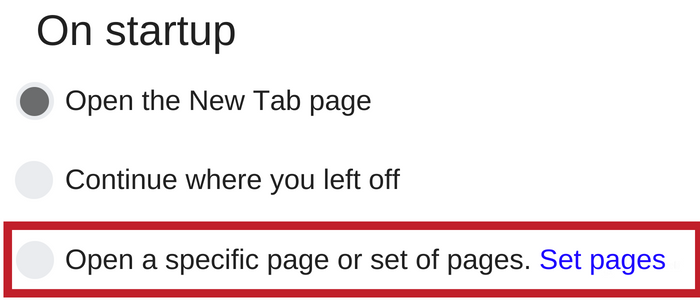
Once you have selected this new user, go to your settings under the menu (the three dot button) and find the “on startup” section. From there, check the “open a specific page or set of pages” option and then click the “set pages” link.
From here you can now drop in all of the sites and web pages you listed before that you want to monitor.
You can also add additional sites if they come to you later on. By setting up a new user in this way, each time you sign in to this window all of these pages will automatically load in the browser.
This will save you a lot of time so that you don’t have to visit each site one at a time every single time you log in. You can easily load up this new user and get a quick snapshot of your online presence by browsing through the tabs.
It’s worth mentioning that if you have a ton of pages you want to monitor (roughly more than 15), it might be a good idea to create another Chrome user for the rest. This will prevent you from potentially overwhelming your browser with loading so many new pages at once.
You can organize these new users by grouping sites that you know you’ll want to compare directly to each other together. You can also choose which tabs go with which new user by having one user house all the priority tabs and the second new user house secondary sites.
Choose whatever system is easiest and the most time-saving for you.
The sum of it
By now you should have a solid grasp on the importance of online reputation monitoring and how to get started.
No matter how you decide to go about doing this, the most important thing to remember is to stay informed!
Make it a habit to check in on the status of your online presence periodically. While that may seem insignificant or like a waste of time, this can pay off big time for you in the future.
Being represented accurately online the next time you look for a job, interact with a customer, or go on a date is the key to building trust with the person screening you. By monitoring your online reputation, you can take the necessary steps to keep your online presence polished and professional. Committing to this goes a long way in building a positive brand online.
If your sleeves are rolled up and you’re ready to dig in to the process of online reputation management and reputation monitoring, sign up for our reputation management software.
If you don’t have much free time, or would prefer the help of our reputation management services, contact us today at (646) 863-8226. You may also schedule a complimentary consultation with a Reputation Advisor who will be happy to discuss your options for Managed Services.